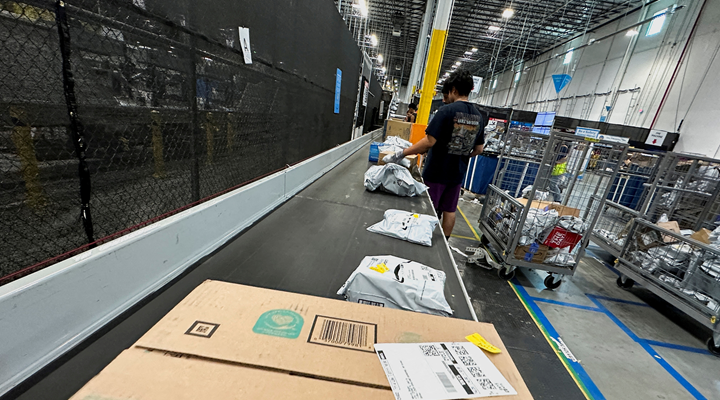Generative AI will be Amazon’s secret weapon this holiday season, leveraging data from its more than 160 million Prime subscribers to improve ad targeting and allowing merchants to produce promotions quickly. Apart from fast shipping and the usual discounts for Black Friday and Cyber Monday, the company is betting that targeted ads, powered by artificial intelligence (AI), will draw more shoppers and advertisers to its platform. Amazon chief executive Andy Jassy said on a call Thursday wit
ay with analysts that machine learning is helping the company present more relevant ads to shoppers.
“When (advertisers) have to think about budget decisions, they’re going to choose (ads) that have large volume and perform better. I think both of those are real advantages in our advertising area right now,” Jassy said.
Last week, the company said it is using generative AI to create better product images for advertisers, a move to direct more eyes to third-party sellers’ products. The tool generates background pictures for merchandise based on product details.
Amazon is not the first online retailer to deploy AI for advertising, but given its scale, Amazon’s use is expected to increase adoption of the strategy.
The main benefit of generative AI will be its “ability to show dozens, if not thousands, of variations of your ad personalised to the user,” said Swiftly chief revenue officer Andy Friedland, a former ad executive at Amazon. Swiftly is a retail technology platform.
He said creating different ads for various audiences can be expensive and expects Amazon’s AI tools to save money for advertisers.
Brendan Witcher, a principal analyst at Forrester, said that Amazon’s generative AI ad tool will be “good for attracting and keeping a segment of third-party sellers and brands advertising on Amazon.”
Other companies including Ascendly Marketing are using generative AI imaging tools that combine pictures of public figures with products. In a recent AI-generated campaign, deceased singer Elvis Presley is holding products from Ascendly’s client, Fast Passports and Visas.
Adding such “whimsical imagery” has increased social sharing significantly, Marshal Davis, Ascendly’s President said. His clients are seeing a bump in sales and Google click-through rates, a trend that Amazon wants to see for its own generative AI ad tools during the holiday season.
Analysts expect Amazon’s advertising business to earn US$14.2 billion during the holiday quarter, up from US$11.56 billion a year earlier, according to LSEG estimates.
The AI-image generator could encourage hesitant shoppers to open their wallets if targeted products are more relevant, Friedland said.
Amazon’s Prime membership, which costs US$14.99 per month or US$139 annually, creates a “huge advantage” in advertising and better targeting shoppers, which leads to customers making more frequent purchases, Witcher said.
“Volume of traffic is a critical component for success in online advertising,” he said.
Amazon forecasts holiday-quarter revenue in the range of US$160 billion and US$167 billion, compared to analysts’ forecasts of US$165.6 billion. Amazon’s revenue in the fourth quarter last year was US$149.2 billion.
Amazon’s AI-imaging poses a threat to smaller advertising firms and freelancers who focus on graphic design, Ascendly’s Davis said.
If widely adopted, Amazon’s AI tools could also have another downside: producing ads with similar images for different products, making it harder for sellers to stand out.
“This could make it difficult for brands to differentiate themselves,” Davis said.
(Reporting by Arriana McLymore in New York City. Additional reporting by Siddharth Cavale in New York City; Editing by Rod Nickel)

